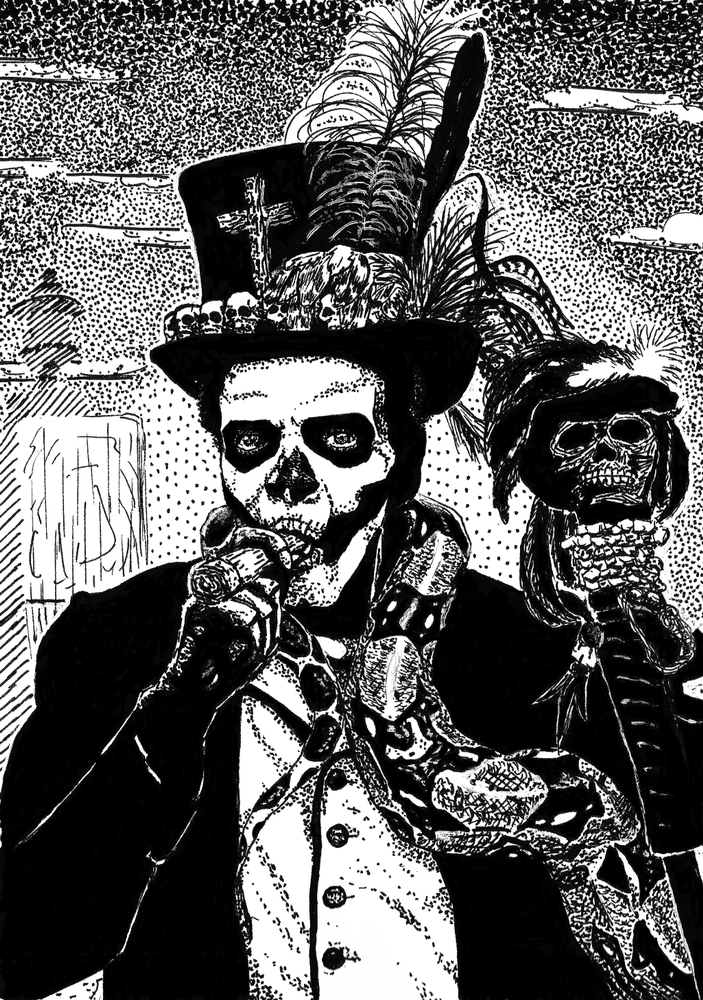
Haitian Vodou is one of several religions of the African diaspora that was founded and spread by Afro-Haitians among the Atlantic Slave Trade between the 1500s and 1800s. It is a syncretic faith that descended from West African religions and Roman Catholicism. It shares roots with other syncretic religions, including Brazilian Candomblé, Santería and even Louisiana Voodoo, among others. While it’s estimated that as many 50% of Haitians are Vodouists, most of Haiti’s population practices some form of Vodou and Catholicism. Despite this, Vodou is often depicted in film and television as being a morbid, malevolent religion that engages in black magic, witchcraft, and devil worship; however, this portrayal is a harmful mischaracterization mostly promoted by outsiders.
Exploring Haitian Vodou
Haitian Vodou is an actual belief system whose practice has spread from Haiti to other parts of the world, thanks to the nation’s diaspora. Vodouists view the world as having visible and invisible realms that are interconnected. Since death is the passage to the invisible realm, practitioners believe that the deceased are still present and move among the living as unseen protectors and sources of inspiration. Vodou followers also believe in the existence of lwa, which may be considered analogous to Catholic Saints. These lwa are intermediaries between followers and a supreme being or creator. Adherents develop relationships with lwa, who provide guidance and counsel regarding the affairs of everyday life. There is not a set of scriptures in the Vodou faith, but it does have clergy. These ordained priests and priestesses provide guidance and leadership to their communities. Vodou emphasizes the individual’s responsibility for self and self-actualization.
Getting It Wrong
Historically, Vodou has been subject to misrepresentation, both intentional and inadvertent. Even the spelling, “Voodoo,” is seen as being an Americanization that is more specific to the Louisiana offshoot of the faith, while “Vodou” is now generally considered as the more correct spelling. Understanding this faith system starts with clearing up some of its common misconceptions:
- Strict religious guidelines: Many Vodouists follow their own practices, passed down through generations of various traditions. As with other syncretic faiths, elements are adapted from other belief systems, so there is considerable variation among communities.
- Animal sacrifice: Often sacrifice of animals is depicted as being done as part of casting a bad spell or appeasing an evil spirit. In reality, animal sacrifice is performed as a way of rebuilding the life force of lwa with that of the deceased animal. In Vodou, this is considered to be a benevolent act that pleases the lwa.
- Black magic: In Vodou, magic refers to communication with spirits, and there is no such thing as black or white magic. Red magic involves conjuring an evil spirit or being influenced or possessed by one to perform evil acts.
- Voodoo dolls: This is another misconception promoted by media. In Vodou, dolls are not used to inflict physical harm on others. A practitioner uses a pin to attach a photograph of the person that the doll is supposed to represent, which can be anyone in the world, including the practitioner. Other items such as flowers or money are pinned in an attempt to improve the fortune of the person represented by the doll.
- Devil worship: In Haitian Vodou, there isn’t a devil as there is in Catholicism and other forms of Christianity. It is believed that French propaganda credited the devil, or Satan, with the successful overthrow of the French government by Haitian revolutionaries in the late 1700s to early 1800s.
Today, many adherents of Vodou are working to fight the historical narrative of it being a harmful and destructive religion. In 2005, the National Confederation of Haitian Vodou was founded to protect adherents from persecution and defamation.

